 Director: Steven Spielberg
Director: Steven Spielberg
Cast: Jeremy Irvine, Toby Kebbel, Peter Mullan, David Thewlis, Emily Watson, Benedict Cumberbatch, Tom Hiddleston
Running time: 146 minutes
Certificate: 12A
Synopsis: When he’s sold to the army after the outbreak of The Great War, Joey the horse encounters a variety of people across Britain and France, experiencing the battle from both sides. But Joey’s original owner, Albert (Levine), hopes to reunite with the horse somehow, even volunteering for action himself…
It isn’t often that one sees a film in which the protagonist is a non-human, particularly if said non-human hasn’t been anthropomorphosized and given an amusing hat of some kind. But that’s exactly what Steven Spielberg has dared to do in WAR HORSE, his adaptation of the Michael Murpurgo novel. That isn’t to say there aren’t human characters with whom we can identify or connect. The titular horse – Joey to his friends – meets a whole variety of folk during his experiences in The Great War: different sexes, ages, and even nationalities. Joey trots through the ensemble cast one after the other, all of which makes for a relatively uneven film; WAR HORSE is, at times, brilliantly tense and emotionally engaging, and at others, woefully tiresome. It is also dogged by Spielberg’s most persistent flaw, his penchant for heavy-handed sentimentality. He reminds us of how thickly he likes to spread the cheese – a Devonshire flavour rather than his usual Americana – almost as much as reminds us why he’s one of Hollywood’s finest working directors.
 As WAR HORSE begins, we are introduced to Albert, the film’s most prominent human character. It’s Albert’s father, Ted (Peter Mullan) who irresponsibly buys Joey the horse, putting the family at great financial risk. Despite Joey’s best efforts to plough their land, he is still sold off to the army when war breaks out. Albert vows to reunite with Joey somewhere somehow (having apparently fallen in love with the horse, as much as he is legally permitted to do so) and becomes the true heart of the story; but the character also personifies many of the film’s less commendable points. Jeremy Levine’s performance is earnest enough, but the clunky and clichéd dialogue with which he has to contend renders his character almost laughable: it’s difficult to take anyone seriously who whispers heartwarming sentiments to the horse in an affected bumpkin accent. Simpleton Albert also seems to be under the impression that his horse can understand English (though it’s possible he can – if every single European involved in the war apparently speaks English, it’s likely the horse does also).
As WAR HORSE begins, we are introduced to Albert, the film’s most prominent human character. It’s Albert’s father, Ted (Peter Mullan) who irresponsibly buys Joey the horse, putting the family at great financial risk. Despite Joey’s best efforts to plough their land, he is still sold off to the army when war breaks out. Albert vows to reunite with Joey somewhere somehow (having apparently fallen in love with the horse, as much as he is legally permitted to do so) and becomes the true heart of the story; but the character also personifies many of the film’s less commendable points. Jeremy Levine’s performance is earnest enough, but the clunky and clichéd dialogue with which he has to contend renders his character almost laughable: it’s difficult to take anyone seriously who whispers heartwarming sentiments to the horse in an affected bumpkin accent. Simpleton Albert also seems to be under the impression that his horse can understand English (though it’s possible he can – if every single European involved in the war apparently speaks English, it’s likely the horse does also).
The first act is saved by the exchanges between Ted (Peter Mullan) and his villainous landlord Lyons (the ever-reliable Professor Lupin). Whilst Mullan is resigned to playing a softer version of the broken-down drunk, there remains a menacing edge beneath his performance; he’s perhaps the only working actor who can say the words ‘I’m going to plant turnips in that thar’ field’ and make it sound like ‘I’m gonna stick this pint glass in yer fookin’ eye ya coont’.
 But for all the jocularity and unintentional humour of the film’s opening chapter, once Joey moves on to the battlefields things soon become serious and the Spielberg amps up the tension considerably. Joey finds himself under the ownership of Captain Nicholls (Tom Hiddleston) who leads a mounted battalion to cross swords with Fritz. This segment proves to be one of the film’s strongest, and Hiddleston shines in the role, as does his comrade Benedict Cumberbatch (played by Sherlock Holmes). The pair duke it out over who has the fastest horse and poshest accent, which is entertaining enough, but there is a genuine darkness to their story. As Joey edges closer the realities of war, the film steps up an emotional gear and Spielberg proves he’s still got it where it counts. This is most clearly seen as Hiddleston’s Nicholls and company charge toward the enemy on horseback, quickly realizing they’d be better equipped with machine guns rather than girly swords. Harrowing stuff indeed. And so it should be; there is a very serious point to be made here.
But for all the jocularity and unintentional humour of the film’s opening chapter, once Joey moves on to the battlefields things soon become serious and the Spielberg amps up the tension considerably. Joey finds himself under the ownership of Captain Nicholls (Tom Hiddleston) who leads a mounted battalion to cross swords with Fritz. This segment proves to be one of the film’s strongest, and Hiddleston shines in the role, as does his comrade Benedict Cumberbatch (played by Sherlock Holmes). The pair duke it out over who has the fastest horse and poshest accent, which is entertaining enough, but there is a genuine darkness to their story. As Joey edges closer the realities of war, the film steps up an emotional gear and Spielberg proves he’s still got it where it counts. This is most clearly seen as Hiddleston’s Nicholls and company charge toward the enemy on horseback, quickly realizing they’d be better equipped with machine guns rather than girly swords. Harrowing stuff indeed. And so it should be; there is a very serious point to be made here.
Joey’s travels in The Great War are intended to outline the futility of it all. He touches different lives in different ways, but underneath it all the characters are all essentially human. And through the eyes of a horse, war appears to be a senseless and frightening thing… have we all got the point yet? The moral thematic core is a sound one, but it’s laboured and overdone, and by the time Joey provokes a truce in no-man’s land, the message begins to feel like a horseshoe round the noggin. That it’s developed through a succession of interactions with different characters is also problematic: predictably, some of the stories are more interesting than others, and engagement with each of the different characters is restricted. Also, some sequences could have been trimmed, creating a tighter and less arduous film.
 Overall, it’s difficult to commit either way to WAR HORSE. It’s not brilliant but does demonstrate flashes of brilliance; nor it is terrible, yet it includes elements that could be deemed as such. The film’s major flaw is its heavy-handed sentimentality, a problem telegraphed from the sound of panpipes in the opening seconds, none of which is helped by the accompanying clumsy script. The plot conveniences are at times ridiculous, and as such the outcome of the film is never in any question.
Overall, it’s difficult to commit either way to WAR HORSE. It’s not brilliant but does demonstrate flashes of brilliance; nor it is terrible, yet it includes elements that could be deemed as such. The film’s major flaw is its heavy-handed sentimentality, a problem telegraphed from the sound of panpipes in the opening seconds, none of which is helped by the accompanying clumsy script. The plot conveniences are at times ridiculous, and as such the outcome of the film is never in any question.
Spielberg’s real talent shines in his knack for shooting ultra-tense battle scenes, scaring us to death in the process. Indeed, a no-man’s land sequence featured late in the film is equally gripping and disturbing. Though not as gruesomely realistic as SAVING PRIVATE RYAN, it’s no less an intense experience, and shows a true cinematic master at work. He proves that he can still move an audience and ignite that emotional spark; he just does it more effectively with action than he does with slower, heartfelt moments. The former genuinely scares and the latter borders on laughable, which is to be expected from a film about a boy who loves a horse. Perhaps it wouldn’t have been too ridiculous to have given Joey the horse an amusing hat after all.
![]() WAR HORSE is released in UK cinemas 13th January 2012.
WAR HORSE is released in UK cinemas 13th January 2012.
Tom Fordy is a writer and journalist. Originally from Bristol, he now lives in London. He is a former editor of The Hollywood News and Loaded magazine. He also contributes regularly to The Telegraph, Esquire Weekly and numerous others. Follow him @thetomfordy.

2 Comments
Leave a Reply
Leave a Reply
Latest Posts
-


Apple TV
/ 3 hours agoApple’s documentary series ‘Hollywood Con Queen’ gets a trailer
Apple has debuted the trailer for its upcoming limited documentary series Hollywood Con Queen...
By Paul Heath -


Film News
/ 3 hours agoTrailer: Russell Crowe in ‘The Exorcism’
The movie has a release date set for this summer.
By Paul Heath -


Film Reviews
/ 14 hours ago‘In The Land Of Saints and Sinners’ review: Dir. Robert Lorenz (2024)
The film is released on Netflix this week.
By Paul Heath -


Home Entertainment
/ 21 hours ago‘Risky Business’ and ‘Blow Out’ are getting the UK Criterion treatment
Risky Business and Blow Out will be released on UK Criterion 4K Blu-ray this...
By Paul Heath
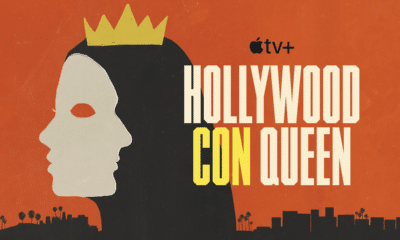

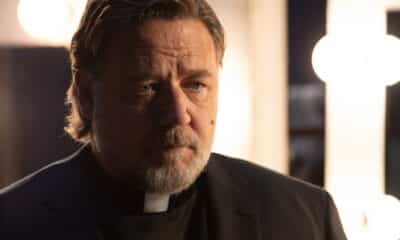

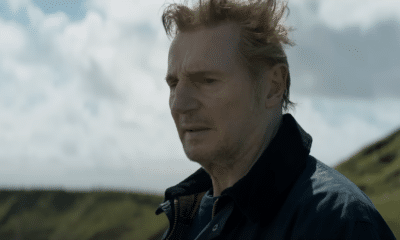

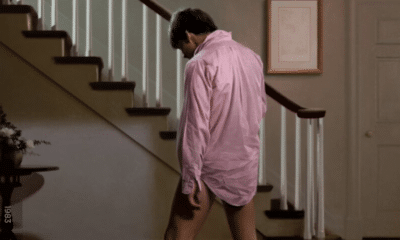



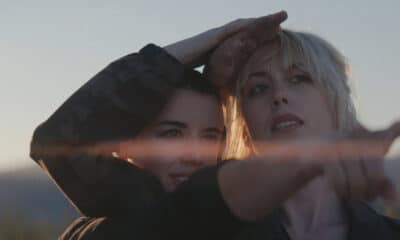

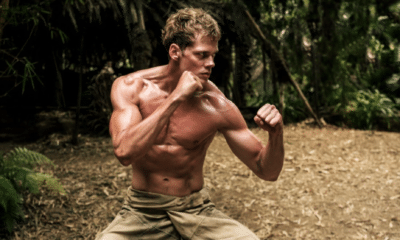

Pingback: War Horse UK Premiere To Take Place This Evenng « MindCorp | Newsfeed
Pingback: THN At The War Horse Press Conference « MindCorp | Newsfeed